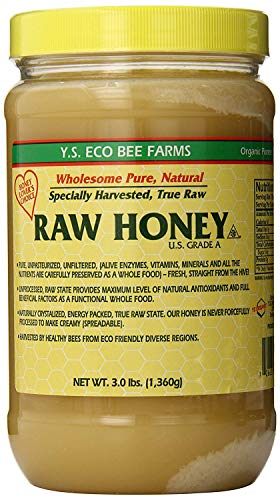How to Choose the Honey
All You Need To Know About Honey

- 1. All You Need To Know About Honey
- 1.1. Production Process
- 1.2. Flavor And Color
- 1.3. Composition of Honey
- 1.4. Health Benefits
- 1.4.1. Healing Wounds and Burns
- 1.4.2. Preventing Acid Reflux
- 1.4.3. Fighting Infections
- 1.4.4. Relieving Cold and Cough Symptoms
- 1.5. Medicinal Use
- 1.6. How To Select And Store Honey
- 1.6.1. Selecting Honey
- 1.6.2. Storing Honey
- 1.7. In conclusion
Honey, a captivating substance cherished for its natural and healthful qualities, has been collected and utilized by humans for millennia. The bees responsible for crafting this delectable treat operate in harmony with Mother Nature, engaging in a mutually beneficial relationship that enhances not only their colonies but also the surrounding flora and fauna.
Similar to wine, honey serves as a manifestation of its environment, embodying the unique attributes of the location where it originates. However, the intricacies of this natural nectar extend beyond its terroir, making it a subject of endless fascination.
Production Process
Honey is created through the collaboration of honeybees, who gather nectar from flowers to initiate the production. Worker bees start by collecting the sugary liquid, nectar, from flowers and storing it in their honey stomachs. Enzymes are introduced to break down complex sugars into simpler forms during this stage. Upon their return to the hive, the worker bees share the nectar with their counterparts through regurgitation. This cycle is reiterated until the nectar undergoes transformation into honey, subsequently being stored in honeycomb cells and sealed with beeswax.
Flavor And Color
A leisurely stroll through the grocery store or farmers' market unveils a diverse array of honeys, showcasing a vibrant spectrum of colors and flavors. These honey varieties often derive their names from the flowers where honeybees gathered nectar, such as clover, acacia, orange blossom, and more.
In the United States, there are over 300 types of varietal honey, ranging in color from pale yellow to deep brown. Interestingly, even hives situated in close proximity can yield honey with distinct flavors. Seasoned honey enthusiasts and beekeepers possess a keen ability to distinguish between various tasting notes. For instance, cotton blossom honey offers a lively yet earthy profile, palmetto honey exudes nuttiness, and buckwheat honey carries a malty essence. The timing of the harvest also plays a role in shaping the flavor profile; honey collected early in the season tends to be lighter and more floral compared to honey harvested later in the year.
Composition of Honey
Honey is a complex mixture of sugars, water, and various compounds. The primary sugars in honey are glucose and fructose, and the exact composition can vary based on the types of flowers the bees visit. Additionally, honey contains trace amounts of vitamins, minerals, antioxidants, and enzymes. The presence of these compounds contributes to the unique taste and potential health benefits of honey.
Health Benefits
There is mounting scientific evidence supporting various historical applications of honey.
Healing Wounds and Burns
In 2015, a review indicated that honey may have healing properties for burns, while a subsequent 2017 study highlighted the role of defensin-1 proteins in honey in promoting wound healing. Interestingly, an earlier study found that medical-grade honey offered no advantage over antibiotics in treating infections and could even elevate infection risks, particularly in individuals with diabetes. Notably, honey is a common ingredient in various products like face creams, deodorants, and shampoos.
Preventing Acid Reflux
There is a suggestion that honey might help prevent acid reflux by coating the esophagus and stomach. However, a 2017 review proposed this idea without substantial backing from clinical research. Gastroesophageal reflux disease, characterized by inflammation, acid reflux, and heartburn, can result from the upward flow of stomach acid.
Fighting Infections
A 2018 review highlighted Manuka honey's antibacterial properties, attributing them to components such as hydrogen peroxide and defensin-1 proteins. The authors suggested that Manuka honey might exhibit superior antibacterial activity compared to other honey varieties. Subsequently, a 2016 in vitro study confirmed Manuka honey's antibacterial effects.
Relieving Cold and Cough Symptoms
Research from 2012 demonstrated that honey was more effective than a placebo in reducing nighttime coughs in children. Two years later, a study explored the potential of a honey and milk solution in treating acute coughs in children, with the authors concluding that the solution appeared to be as effective as two over-the-counter products designed for the same purpose.
Medicinal Use
A 2012 review emphasizes the diverse range of conditions and health issues addressed in Ayurvedic medicine through the use of honey. Whether combined with other remedies and ingested or applied topically, honey is believed to be beneficial for:
- Hiccups
- Stress
- Weakness
- Bed-wetting and frequent urination
- Bad breath
- Hangover effects
- Teething pain in babies older than 1 year
- Eczema and dermatitis
- Burns, cuts, and wounds
- Coughs and asthma
- Sleep disturbances
- Vision problems
- Stomach ulcers
- Diarrhea and dysentery
- Vomiting
- High blood pressure
- Obesity
- Jaundice
- Arthritis
While clinical trials have not validated many of these purported uses, a 2017 review recommended honey as a treatment for various skin ailments. This recommendation was based on honey's noted antibacterial, antiviral, anti-inflammatory, and antioxidant properties.
How To Select And Store Honey
Selecting and storing honey properly is important to ensure its quality and longevity. Here are some tips to help you choose and store honey:
Selecting Honey
- Raw and Unfiltered: Choose honey that is labeled as "raw" and "unfiltered" if possible. Raw honey retains more of its natural vitamins, enzymes, and antioxidants.
- Local and Unprocessed: Buying honey from local beekeepers or farmers' markets can be a good choice. Local honey may contain traces of local pollen, which could potentially help with allergies.
- Varietal Honey: Consider exploring different varieties of honey based on the nectar source. Varietal honey, such as clover, acacia, or lavender, will have unique flavors and aromas.
- Check for Crystallization: Crystallization is a natural process in honey. Some honey varieties crystallize faster than others. If you prefer liquid honey, choose varieties with a slower crystallization rate.
Storing Honey
- Cool and Dark Place: Store honey in a cool, dark place, away from direct sunlight. Exposure to light and heat can cause honey to darken and lose its flavor and nutritional value.
- Airtight Container: Keep honey in an airtight container to prevent moisture absorption, which can lead to fermentation. Ensure the lid is tightly sealed after each use.
- Avoid Contamination: Use a clean and dry utensil when scooping honey to prevent contamination. Water can introduce moisture, which may lead to spoilage.
- Temperature Control: While honey can crystallize over time, storing it at a consistent temperature (ideally between 50-70°F or 10-21°C) can slow down this process.
- Do Not Refrigerate: Honey does not need to be refrigerated. In fact, refrigeration can accelerate crystallization. Keep it at room temperature for optimal quality.
- Keep Away from Strong Odors: Honey can absorb odors from its surroundings, affecting its taste and aroma. Store it away from strong-smelling substances.
In conclusion
Honey stands as a precious and esteemed natural product, boasting a wealth of history, diverse varieties, and numerous health advantages. Whether incorporated as a sweetener, a therapeutic solution, or a tasteful enhancement in culinary endeavors, honey consistently maintains its substantial influence in our lives. Opting for the versatility and nutritional benefits of honey can be a delightful and health-conscious decision for those in search of a natural substitute for processed sugars and sweeteners.











